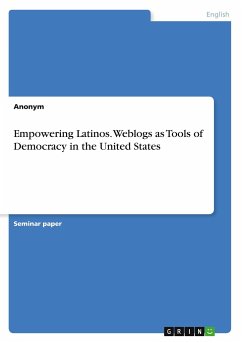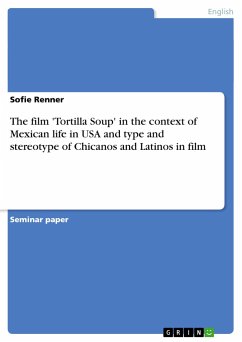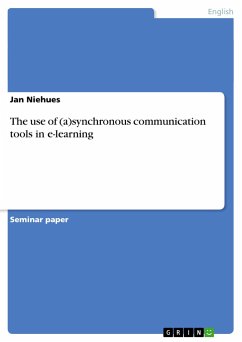Seminar paper from the year 2005 in the subject American Studies - Culture and Applied Geography, grade: 1,0, Duke University, language: English, abstract: Just a little over ten years ago, the first website became accessible to the public and even thoughthe World Wide Web of today is still in its teens, it has become a phenomenon of virtually globalimpact. By the mid 1990s, people started to discover the joys of online communication via socalledweblogs or blogs, but blogs really evolved at the turn of the millennium, when theinternational blogosphere virtually exploded. Anyone could create one, anyone could participatein one, and everyone had at least heard of one. Blogs revolutionized online communication bycreating worldwide communities of technology nerds, ambitious writers, and simply those whofound an outlet for their exhibitionist tendencies.Decades earlier, in 1981, renowned German philosopher and sociological theorist JürgenHabermas published his seminal work Theory of Communicative Action, in which he formulatesa theoretical framework for societal progress achieved through communication.In the United States of today, progress and the means of communication are inherently White, infact knowledge and societal power are White. This research is designed to look at the question ofdemocratic empowerment among the Latino minority, this is, whether weblogs provide theLatino immigrant community with means to connect, exchange information, and thus gain socialand political influence by the power of knowledge. Is it possible for Latinos in the U.S. to use themedium of weblogs according to Habermas' theory and change the distribution of knowledge andpower in American society?Habermas' approach will be described as the theoretical framework for this research paper. It willthen be determined how the Latino community in the U.S. could or could not use the weblog as atool of empowerment.
Hinweis: Dieser Artikel kann nur an eine deutsche Lieferadresse ausgeliefert werden.
Hinweis: Dieser Artikel kann nur an eine deutsche Lieferadresse ausgeliefert werden.








